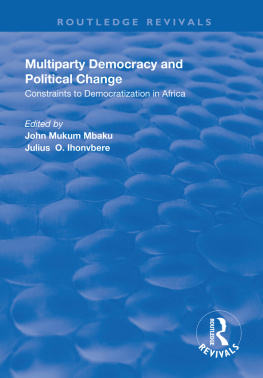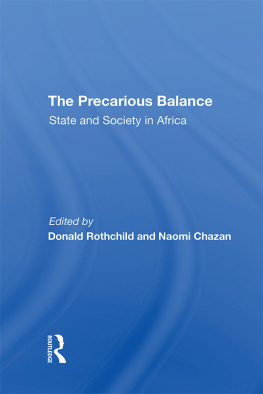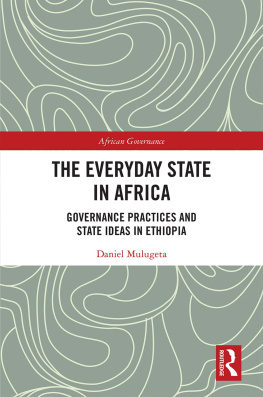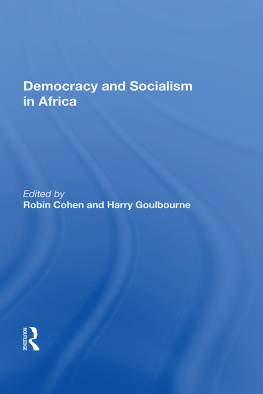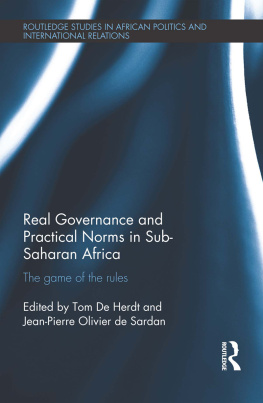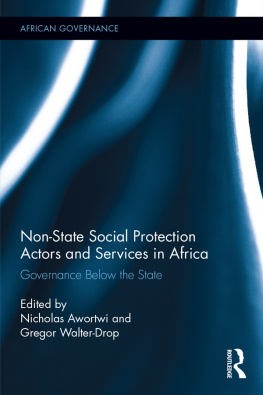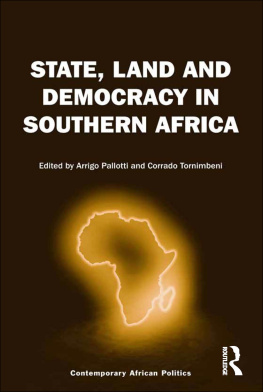Wale Adebanwi (editor) - Everyday State and Democracy in Africa: Ethnographic Encounters
Here you can read online Wale Adebanwi (editor) - Everyday State and Democracy in Africa: Ethnographic Encounters full text of the book (entire story) in english for free. Download pdf and epub, get meaning, cover and reviews about this ebook. year: 2022, publisher: Ohio University Press, genre: Politics. Description of the work, (preface) as well as reviews are available. Best literature library LitArk.com created for fans of good reading and offers a wide selection of genres:
Romance novel
Science fiction
Adventure
Detective
Science
History
Home and family
Prose
Art
Politics
Computer
Non-fiction
Religion
Business
Children
Humor
Choose a favorite category and find really read worthwhile books. Enjoy immersion in the world of imagination, feel the emotions of the characters or learn something new for yourself, make an fascinating discovery.

- Book:Everyday State and Democracy in Africa: Ethnographic Encounters
- Author:
- Publisher:Ohio University Press
- Genre:
- Year:2022
- Rating:5 / 5
- Favourites:Add to favourites
- Your mark:
Everyday State and Democracy in Africa: Ethnographic Encounters: summary, description and annotation
We offer to read an annotation, description, summary or preface (depends on what the author of the book "Everyday State and Democracy in Africa: Ethnographic Encounters" wrote himself). If you haven't found the necessary information about the book — write in the comments, we will try to find it.
Bottom-up case studies, drawn from the perspective of ordinary Africans experiences with state bureaucracies, structures, and services, reveal how citizens and states define each other.
This volume examines contemporary citizens everyday encounters with the state and democratic processes in Africa. The contributions reveal the intricate and complex ways in which quotidian activities and experiencesfrom getting an identification card (genuine or fake) to sourcing black-market commodities to dealing with unreliable waste collectionboth (re)produce and (re)constitute the state and democracy. This approach from below lends gravity to the mundane and recognizes the value of conceiving state governance not in terms of its stated promises and aspirations but rather in accordance with how people experience it.
Both new and established scholars based in Africa, Europe, and North America cover a wide range of examples from across the continent, including
- bureaucratic machinery in South Sudan, Nigeria, and Kenya
- infrastructure and shortages in Chad and Nigeria
- disciplinarity, subjectivity, and violence in Rwanda, South Africa, and Nigeria
- the social life of democracy in the Congo, Cameroon, and Mozambique
- education, welfare, and health in Ethiopia, the Democratic Republic of Congo, and Burkina Faso
Everyday State and Democracy in Africa demonstrates that ordinary citizens encounters with state agencies and institutions define the meanings, discourses, practices, and significance of democratic life, as well its distressing realities.
Contributors:
- Daniel Agbiboa
- Victoria Bernal
- Jean Comaroff
- John L. Comaroff
- E. Fouksman
- Fred Ikanda
- Lori Leonard
- Rose Lvgren
- Ferenc Dvid Mark
- Ebenezer Obadare
- Rogers Orock
- Justin Pearce
- Katrien Pype
- Edoardo Quaretta
- Jennifer Riggan
- Helle Samuelsen
- Nicholas Rush Smith
- Eric Trovalla
- Ulrika Trovalla
Wale Adebanwi (editor): author's other books
Who wrote Everyday State and Democracy in Africa: Ethnographic Encounters? Find out the surname, the name of the author of the book and a list of all author's works by series.

